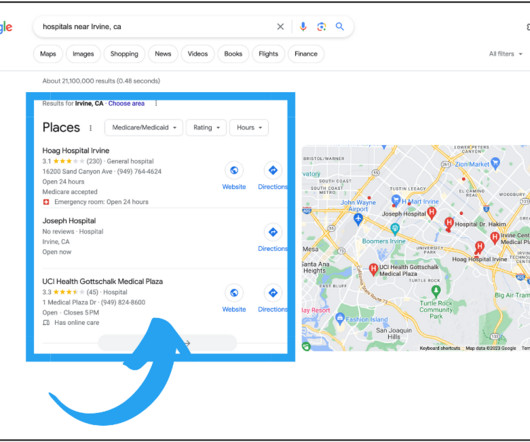Boost Local Visibility: Top Local SEO Tips for Multilocation Healthcare Businesses
Healthcare Success
JUNE 12, 2023
Here are a few places that must have location-specific content: Title tags This HTML tag tells Google and other search engines what the page title is and plays a crucial role in organic ranking. Meta description tags This HTML tag gives Google and other search engines a summary of the page and plays a crucial role in organic ranking.













Let's personalize your content